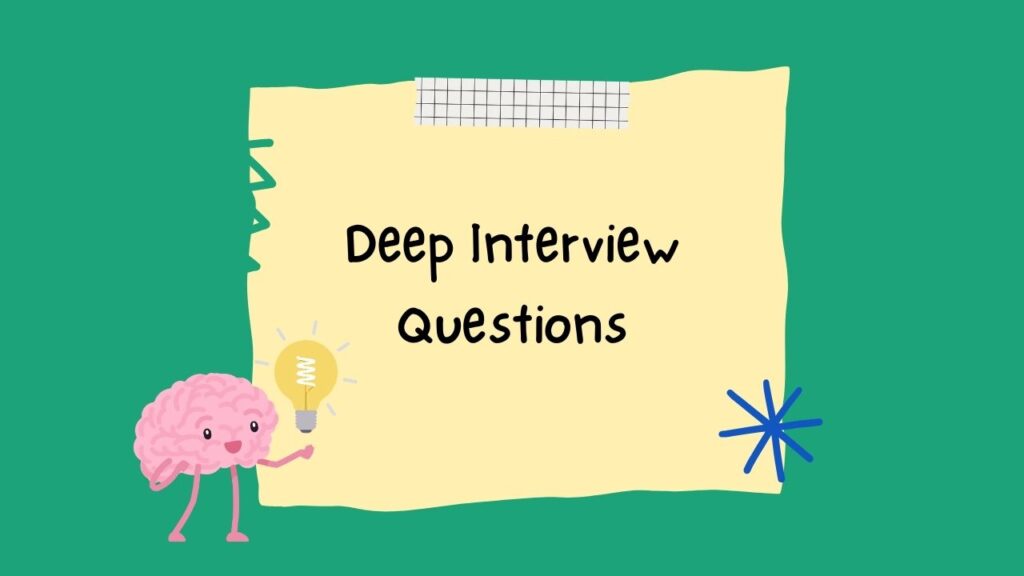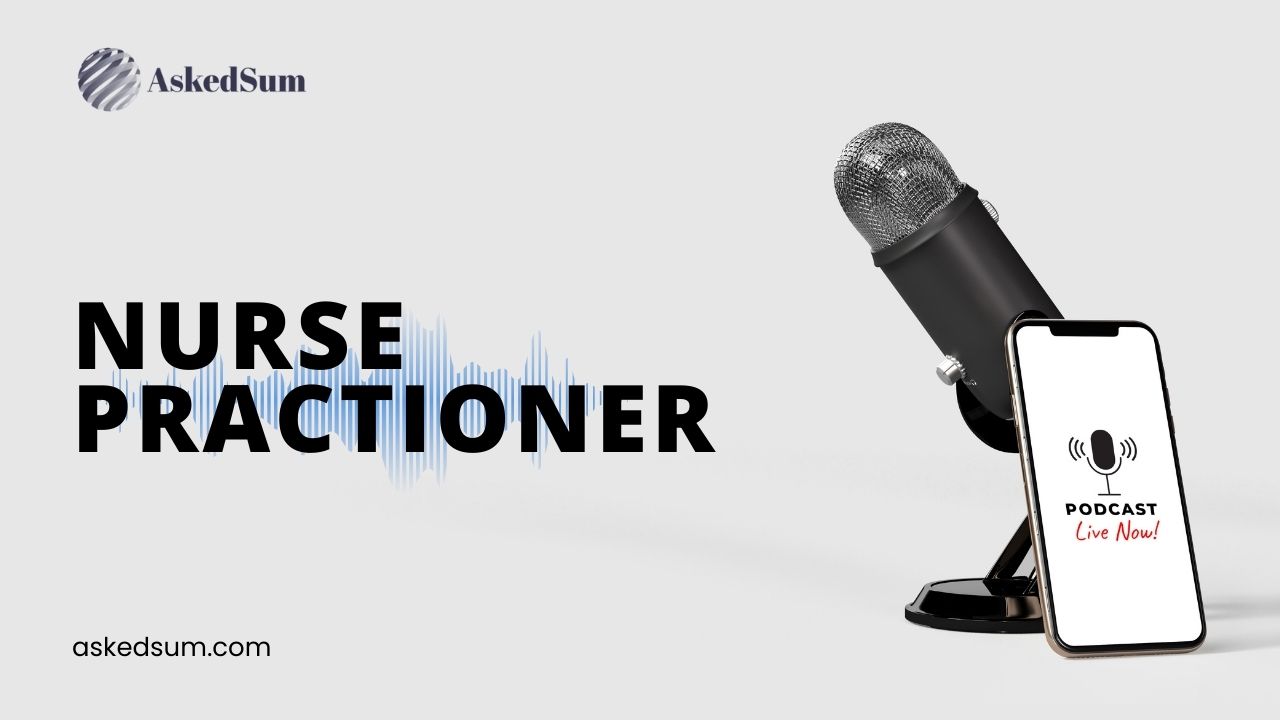Table of Contents
Becoming a nurse practitioner (NP) is not merely a career choice—it’s a call to dedicate oneself to the care, comfort, and well-being of others. Amid the rapidly evolving healthcare landscape, nurse practitioners stand as a beacon of hope, bridging the gap between patients and optimal health outcomes. This post dives deep into understanding the intrinsic motivations behind pursuing this noble profession, alongside equipping aspiring NPs with the tools to navigate interview questions and truly reflect upon their decision.
Importance of the Title:
The decision to become a nurse practitioner is profound. It’s crucial for aspiring NPs to introspect and grasp the depth of their motivations. Understanding “why” not only aids in making informed decisions but also strengthens one’s conviction in the face of challenges. Furthermore, interviewers seek candidates who possess clarity and passion, which is why delving into this question can set an aspirant apart.
Deep Dive into 33+ Questions to Ask LASIK Doctors
10 Interview Questions with Detailed Answers:

1. Q: Why do you want to become a nurse practitioner?
A: From a young age, I was always drawn to roles that allowed me to directly impact and improve the lives of others. One defining moment was when my grandmother fell ill, and I witnessed firsthand the incredible care and empathy exhibited by her nurse practitioner. It wasn’t just about medical expertise; it was the genuine compassion and the ability to bring comfort during the most challenging times. This experience solidified my decision to become an NP, allowing me to merge clinical expertise with holistic patient care.
2. Q: What qualities do you believe make an excellent NP?
A: An outstanding nurse practitioner is a blend of medical expertise, compassion, patience, and strong communication skills. For instance, I recall a colleague sharing a story about an NP who, through careful listening and observation, detected subtle signs of depression in a routine patient visit, leading to timely intervention. This story exemplified the importance of not only having medical knowledge but also the capacity to observe, understand, and genuinely care for patients.
3. Q: How do you handle emotionally draining situations?
A: Emotionally challenging situations are inevitable in the medical field. Over the years, I’ve learned the importance of maintaining a balance between empathy and professional detachment. After encountering a particularly distressing case, such as a young terminal patient, I ensure I offer them utmost care and understanding. Afterward, I engage in self-care activities like mindfulness or speaking with colleagues to process emotions and prevent burnout.
4. Q: What motivated you to specialize (or not) in a particular area of care?
A: My decision to specialize in pediatric care was influenced by my passion for child health and development. I’ve always been intrigued by the resilience and spirit of children. While the challenges are distinct, the rewards, such as seeing a child recover or helping a family navigate their child’s health, are immeasurable.
5. Q: How do you envision the future of the nurse practitioner role?
A: I see the role of the nurse practitioner becoming even more integral to the healthcare system. With the increasing need for specialized care, especially in underserved areas, NPs will be at the forefront of bridging gaps, ensuring that patients receive timely and comprehensive care. Moreover, I believe there’ll be a greater emphasis on interdisciplinary collaboration, where NPs work hand-in-hand with other healthcare professionals for holistic patient care.
6. Q: How do you stay updated with the latest in medical advancements?
A: Continuous learning is crucial in our field. I regularly attend workshops and seminars, and I’ve subscribed to several medical journals. Additionally, I’m part of a professional network where peers share insights and the latest findings, ensuring I’m always abreast of developments that can enhance patient care.
7. Q: Describe a challenging case you’ve managed and how you approached it.
A: I once treated a teenager who showed symptoms of multiple disorders. The challenge was the overlapping symptoms and the patient’s reluctance to communicate. I took a patient-centric approach, building trust over several sessions, allowing them to open up about their challenges. With their cooperation and a multidisciplinary approach involving psychologists and specialists, we formulated a comprehensive care plan, ultimately leading to a positive outcome.
8. Q: How do you handle disagreements with doctors or other healthcare professionals?
A: Collaboration is at the heart of patient care. When disagreements arise, I prioritize open communication. For instance, if I have a differing opinion about a patient’s treatment plan, I ensure to present my perspective backed by evidence, always keeping the patient’s best interest at the forefront. Mutual respect and a shared goal of optimal patient care usually help resolve disagreements.
9. Q: What steps do you take for self-care to prevent burnout?
A: Recognizing that burnout is a genuine concern, I’ve incorporated regular self-care routines. These include physical activities like yoga, mental relaxation techniques like meditation, and ensuring I take adequate breaks. Additionally, having a support system, both professionally and personally, allows me to discuss and offload stresses, ensuring I remain emotionally and mentally fit for my patients.
10. Q: How do you handle situations where a patient or their family is dissatisfied with care?
A: Patient satisfaction is crucial. If a patient or their family expresses dissatisfaction, I approach the situation with active listening. Understanding their concerns fully is the first step. Then, I provide explanations or adjustments where necessary, always ensuring transparency and empathy. If needed, I collaborate with other healthcare professionals to ensure the patient’s concerns are holistically addressed.
Answers With Best Reasons
- Passion for Patient Care
Reason: At the heart of nursing is the desire to provide exceptional patient care. Example: After volunteering at a local clinic, I realized how fulfilling it is to make a tangible difference in patients’ lives daily. - Advanced Autonomy
Reason: Nurse practitioners often have more autonomy compared to registered nurses, allowing them to diagnose, treat, and manage patients. Example: I want to be the one who formulates a plan of care and follows a patient’s journey from start to finish. - Lifelong Learning
Reason: The medical field is constantly evolving, and NPs engage in continuous learning to stay current. Example: I’m excited about attending workshops, conferences, and reading up on the latest treatments to offer the best care. - Specialization Opportunities
Reason: NP roles allow for various specializations, from family medicine to psychiatry. Example: My passion lies in pediatric care, and as an NP, I can focus exclusively on treating young patients. - Holistic Approach
Reason: NPs often take a comprehensive view of healthcare, focusing on the entirety of the patient’s well-being. Example: Rather than just treating a symptom, I aim to understand the underlying causes, lifestyle factors, and mental health components influencing a patient’s health. - Addressing Healthcare Shortages
Reason: Many regions face physician shortages, and NPs can help bridge this gap. Example: I want to work in rural areas where healthcare is limited and use my skills to serve those communities. - Leadership and Mentorship
Reason: As an NP, there’s an opportunity to lead teams and mentor upcoming nurses. Example: Having benefited from excellent mentors in my career, I look forward to guiding new nurses in their professional journey. - Flexibility and Variety
Reason: NPs can work in various settings, from hospitals to private practices, allowing for diverse experiences. Example: The idea of working in different clinical settings, from emergency rooms to school clinics, appeals to my desire for varied experiences. - Income Potential and Job Security
Reason: The demand for NPs is growing, often leading to competitive salaries and job stability. Example: I want a career that not only fulfills me emotionally but also provides financial stability, and nursing practice offers both. - Building Lasting Relationships
Reason: NPs often have the chance to build deep, long-term relationships with their patients. Example: One of my most memorable experiences was seeing a patient through her pregnancy journey and then caring for her child – such relationships are the heart of why I want to be an NP.
Thoughtful Interview Questions:

- How has your understanding of the NP role evolved over time?
- What role does continued education play in an NP’s journey?
- How do you plan to advocate for your patients?
- How do you ensure that your patients feel heard and understood?
- What are your strategies for building trust with patients?
- How do you deal with situations where you might not know the answer immediately?
- In what ways do you think technology is impacting the role of nurse practitioners?
- How do you handle cultural differences or language barriers in patient care?
- What strategies do you employ to stay resilient in the face of ongoing challenges?
- How do you manage the balance between personal life and demanding job requirements?
Deep Interview Questions:

- How do you perceive the balance between empathy and professional detachment?
- How would you approach a situation where your clinical judgment is challenged by a patient’s family?
- What personal experiences have most influenced your approach to patient care?
- How do you cope with making a mistake or facing a patient’s adverse outcome?
- How do you prioritize patient care in scenarios where resources are limited?
- How do you navigate ethical dilemmas in your practice?
- How do you maintain your mental health given the emotional intensity of the profession?
- In what ways do you think the healthcare system can better support NPs?
- How do you envision the evolution of patient-NP relationships in the future?
- What are your reflections on end-of-life care and the role NPs play in it?
Funny Interview Questions:

- If you could have a superhero power as an NP, what would it be?
- Have you ever imagined nursing tools as musical instruments?
- If there was a “Nurse Practitioner Olympics,” what would be your gold medal event?
- How would you handle a mischievous patient who insists you’re a doctor in disguise?
- If you had to choose a mascot for nurse practitioners, what would it be?
- What’s the funniest misconception someone has had about your job?
- If stethoscopes could talk, what do you think yours would say about you?
- Which fictional doctor or nurse from movies or TV do you most relate to?
- If you had a theme song playing every time you entered a patient’s room, what would it be?
- Have you ever had a “I can’t believe this is happening” comical moment in your practice?
Meaningful Interview Questions:

- How do you plan to address healthcare disparities in your role?
- What legacy do you hope to leave behind as an NP?
- How do you ensure that you treat the patient as a whole, rather than just their symptoms?
- What steps are you taking to ensure inclusivity in patient care?
- How do you handle situations where a patient’s cultural or religious beliefs conflict with medical advice?
- How do you approach mental health discussions with patients?
- In what ways do you involve the patient’s family in care decisions?
- How do you handle situations where a patient may not have the means to follow through with recommended treatments?
- What role does patient education play in your approach to care?
- How do you navigate situations where a patient may be non-compliant or resistant to advice?
Why I Want to Be a Nurse Practitioner Essay
The journey to becoming a nurse practitioner is rooted not only in a desire for personal growth but also in a genuine passion to improve patient care and health outcomes. My motivation to pursue this advanced nursing role stems from a combination of past experiences, professional aspirations, and the innate urge to make a tangible difference in the lives of patients.
From the onset of my nursing career, witnessing the diverse and critical roles nurse practitioners play in healthcare reinforced my aspiration. Their skillset, a blend of clinical expertise and compassionate patient interaction, showcases an unparalleled commitment to holistic care. Their deep-rooted knowledge goes beyond traditional nursing, bridging the gap between nurses and physicians, thereby creating an environment of collaborative care. This synergy resonates with my vision of healthcare, where every individual receives tailored care with the utmost empathy and precision.
Another driving force is the potential for autonomy and leadership. As a nurse practitioner, there’s the possibility to diagnose, treat, and manage patient care. This degree of responsibility not only reflects trust but also the expectation of a continuous pursuit of knowledge. Staying updated with the latest research, treatments, and medical advancements is integral to this role. I find this continuous learning process invigorating and believe that it ensures patients receive the most informed and effective care possible.
Further, the flexibility in specialization is appealing. Whether it’s family care, pediatrics, geriatrics, or psychiatric health, the varied fields allow nurse practitioners to align their career with their passion and expertise. For me, delving deep into a specialized area and mastering it is an opportunity to make a more profound impact on a specific patient group.
Beyond the technical and clinical aspects, the emotional connection with patients is paramount. It’s in those quiet moments, offering assurance to a worried family member or explaining a diagnosis in layman’s terms, that the essence of a nurse practitioner truly shines. These moments validate the difference one can make in a patient’s health journey.
In conclusion, my desire to become a nurse practitioner is an amalgamation of wanting to expand my clinical prowess, lead in healthcare, and most importantly, touch lives in a more profound way. In a constantly evolving healthcare landscape, nurse practitioners stand as pillars of expertise, compassion, and unwavering commitment. I am enthusiastic about joining their ranks and dedicating my career to enhancing patient care and outcomes.
10 Strengths and Weaknesses:
Strengths:
- Empathy: Tuning into patients’ emotions and validating their feelings.
- Clinical Knowledge: Staying updated on medical advancements and procedures.
- Communication Skills: Clearly and effectively conveying information to patients and families.
- Resilience: Staying grounded even in challenging scenarios.
- Team Player: Collaborating effectively with the healthcare team for optimal patient outcomes.
- Adaptability: Adjusting to changing situations and diverse patient needs.
- Listening Skills: Truly hearing and understanding patient concerns.
- Problem-solving: Navigating complex medical challenges with innovation.
- Ethical Judgement: Upholding the highest moral standards in all situations.
- Time Management: Efficiently managing patient care in a bustling environment.
Weaknesses:
- Overcommitment: Occasionally taking on too many tasks or patients.
- Emotional Investment: Sometimes becoming too emotionally attached to patients.
- Perfectionism: Seeking perfection in scenarios where flexibility is needed.
- Hesitation to Delegate: Trying to manage everything personally rather than involving the team.
- High Self-expectations: Setting exceedingly high standards, leading to undue pressure.
Challenges:
- Keeping up with rapid medical advancements.
- Navigating intricate patient dynamics.
- Balancing workload and self-care.
Benefits:
- Immense personal and professional satisfaction.
- Building deep, meaningful patient relationships.
- A role that’s highly respected in healthcare.
Conclusion:
Choosing the path of a nurse practitioner is an act of devotion to human health and well-being. While it comes with its set of challenges, the rewards—both tangible and intangible—are monumental. With clarity of purpose and preparation, every aspirant can step confidently into this noble profession.

